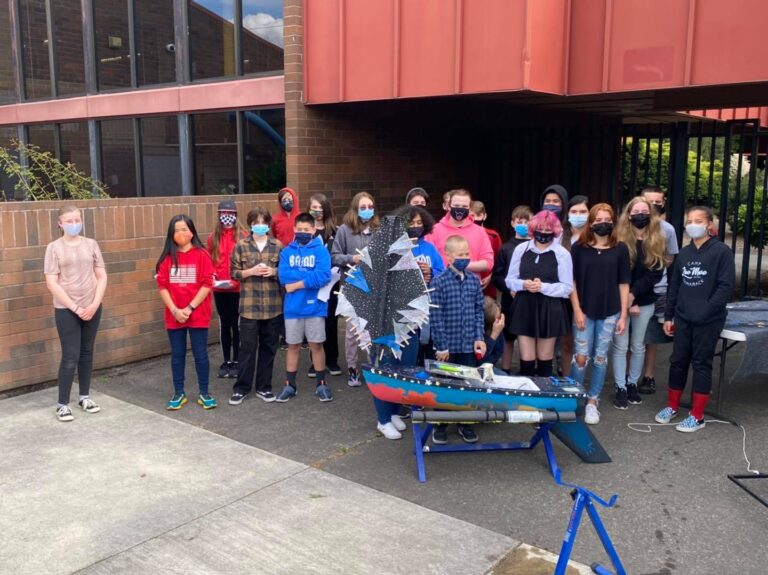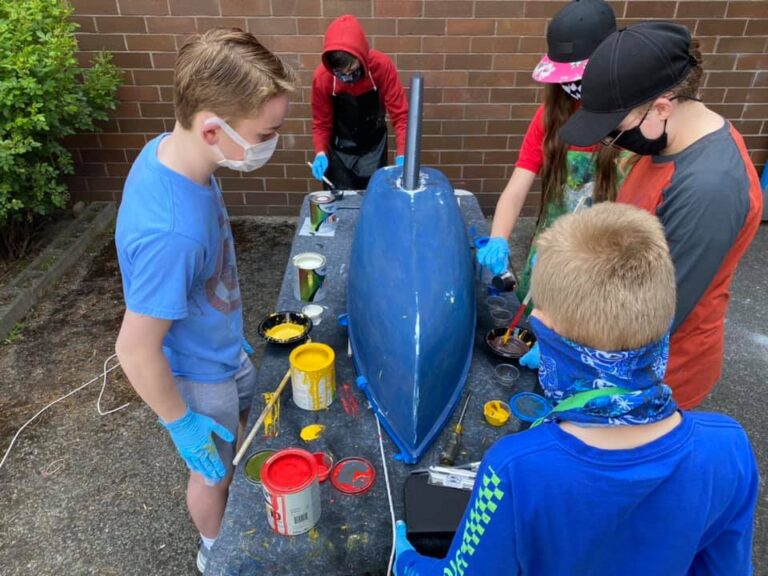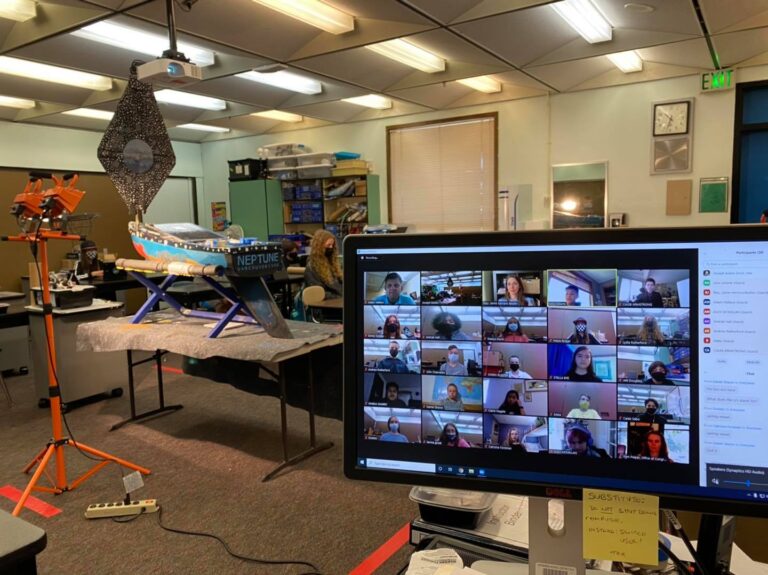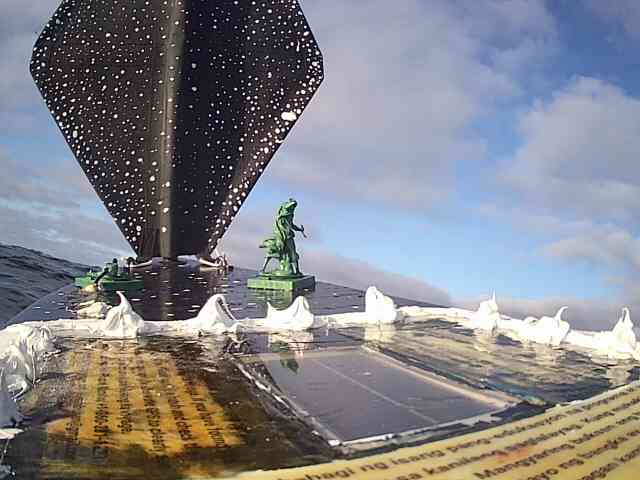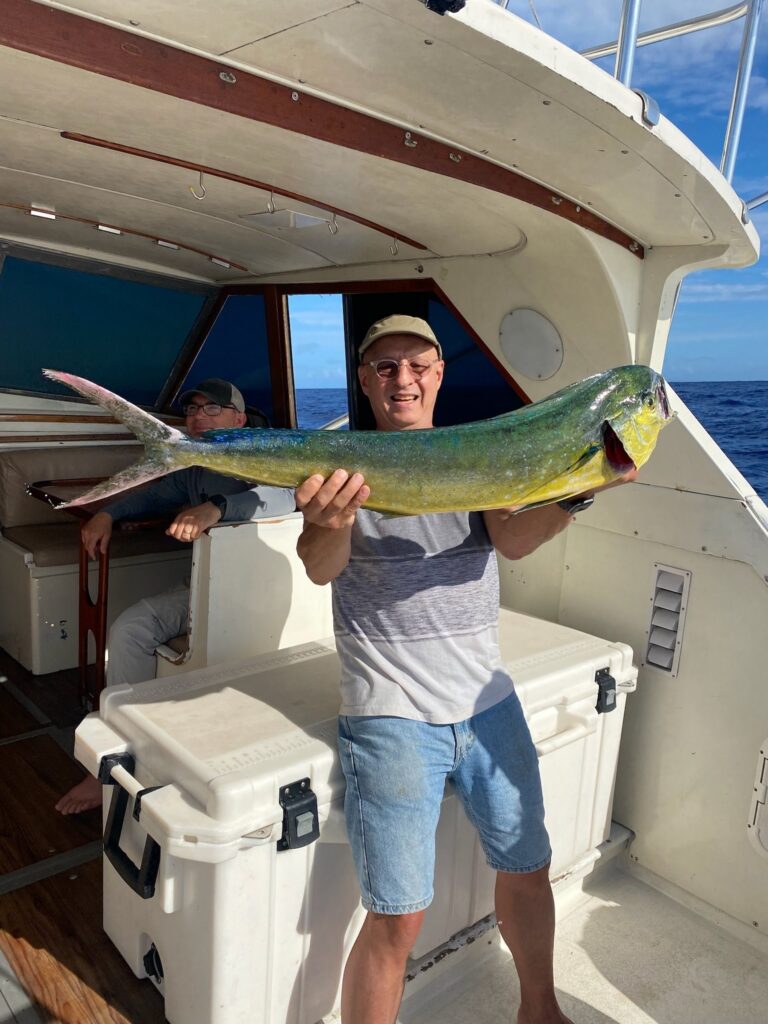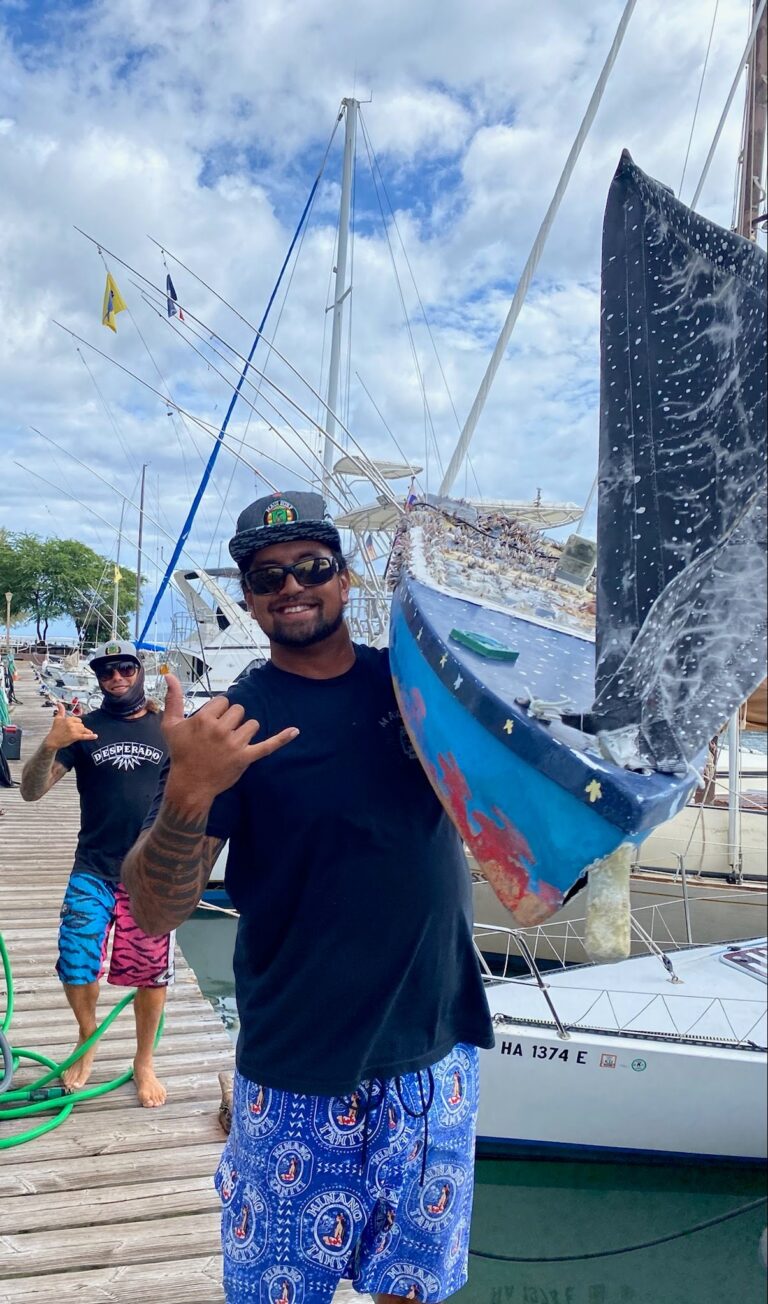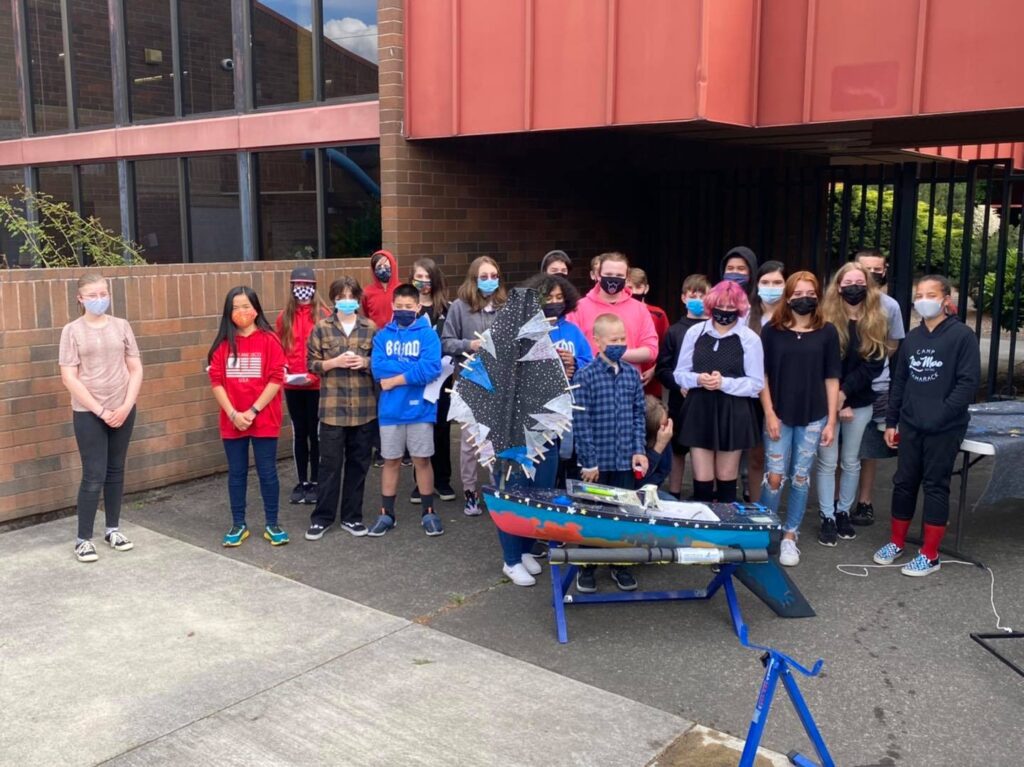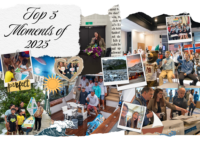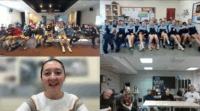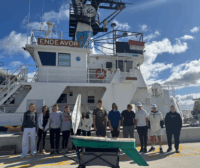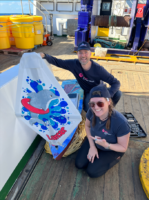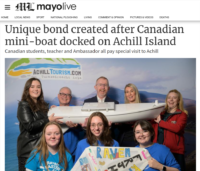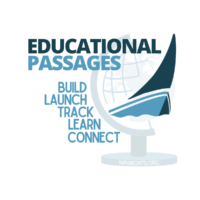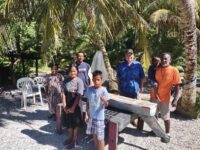PRESS RELEASE
CONTACT: Cassie Stymiest, Educational Passages, 207-619-1259, cassie@educationalpassages.org
VANCOUVER, WA. Another 5.5 foot long uncrewed student sailboat (miniboat) was recovered on March 23, 2022 after 248 days and 5,347 km of traveling across the Pacific. Its recovery was a surprise to the students involved, not in where it was found, but that it had been found after 5 months without a GPS signal. This boat, named Neptune, is the first Educational Passages miniboat to reach Hawaii.
Earlier this year, another miniboat from Rye, New Hampshire (see educationalpassages.org/rye-nh-classroom-connects-with-norway-school-in-unique-way/) sailed across the Atlantic and made national and international headlines when it landed in Norway on January 30 after 4 months without a GPS signal where it was recovered by a middle school student. Due to outcomes like these, Educational Passages, the nonprofit organization based in Maine that runs the Miniboat Program, is reaching its mission to connect students around the world to the ocean and each other through these projects (educationalpassages.org).
Educational Passages worked with Wy’east Middle School (see sites.google.com/evergreenps.org/wyeast) on the Neptune last year as a part of their Miniboat Program. “The miniboat project was so engaging for my students when we did it with the CRMM Miniboat Program the previous year, that I wanted to give a new set of students the same opportunity,” said Mr. Boken who led the project at Wy’east Middle School. “So I wrote a grant to the H.B. Fuller Foundation, which has a division located here in Vancouver, and it was awarded.”
H.B. Fuller, a global, industrial adhesives manufacturer, sponsors a Community Affairs Council (CAC) in Vancouver, Washington, to support local community organizations and initiatives that matter to its employees. The Vancouver CAC recently sponsored the Wy’east miniboat because of its combined focus on STEM (Science, Technology, Engineering and Math) education and youth leadership development. Students, together with their families, interact with multiple science disciplines through the Wy’east program, which can spark their passion for science and leadership, and hopefully their own commitment to supporting their communities in the future.
Educational Passages shipped the kit and teams were assigned in early 2021. With special permissions from the school, students came in person to work on the boat. “Once the pandemic started, my science students were the only ones consistently coming to class and it was due to their engagement with this project,” said Mr. Boken. Throughout the project, students shared their progress on Facebook (facebook.com/wyeastminiboats) and their community about their experiences. They connected with other students in the school, worked with other teachers like the Art, Shop, and STEM teachers, and chatted informally among friends and family as well. The community also supported this project as parents and community members were invited as advisors and virtual presenters. These included NOAA weather scientists, social media experts, artists, and even a local Congresswoman.
After a celebration event in June and school ended for the year, Mr. Boken reached out to Mr. Nate Sandel, the Education Director at CRMM and lead Captain of the CRMM Miniboat Program. Mr. Sandel was heading out to launch two of their miniboats, Destiny and Second Wind from the Alaska Sunrise. Mr. Boken was welcomed aboard and a triple launch of miniboats happened 100 km west of Garibaldi on July 18. Destiny and Second Wind traveled down the coast and landed in California, while Neptune traveled to the southwest.
The Neptune reported its position via GPS and also data from sensors that the Wy’east Climatology Team installed. The sensor system, which was designed by Wayne Pavalko at Maker Buoy (makerbuoy.com) for a drifting buoy, was modified for the miniboats in 2021. “It’s been great to collaborate with Educational Passages because we want to contribute to environmental awareness and a better understanding of the ocean environment,” said Mr. Pavalko. “Education and innovation are a big part of our work.” An image from the deck of Neptune came through the satellite feed on July 19, another miniboat first.
Educational Passages has been working over the years to add this technology to their miniboats. “These sensor packs are now collecting air temperature, water temperature, pitch, and images from cameras,” said Educational Passages Executive Director Cassie Stymiest. “Since the boats are drifting by the currents and sailing with the wind, we should be making sure we can collect as much data about that journey as possible. This will help us all to better understand what is happening out at sea and how the ocean is changing. Our goal is to build that knowledge so it will lead to awareness and then action.”
By the end of July, the GPS systems on Neptune started to fail and it was not heard from again. Then, on March 23, 2022, the Finest Kind Sportfishing Maui’s The Reel Hooker, set out 3 hours out of Lahaina, Hawaii. They were a few miles off the far side of Lanai when they spotted a “floater.” This is what fishermen call drifting debris that’s been floating for a long time, and under these “floaters” tend to be congretating Mahi mahi, which is what they are always on the lookout for. In this spot, they ended up catching a Mahi mahi but then pilot whales showed up and scared the fish away. They went to investigate the “floater” and found what appeared to be a little boat partially submerged in the water with only the sail and bow on the surface. They recovered the vessel to find that it was a student project from Wy’east Middle School. The miniboat Neptune had been found. “It’s like finding a needle in a haystack, times a billion,” said Mr. Brad Brucker, who was one of the clients on the charter at the time who helped recover the boat. Mr. Brucker reached out to Mr. Boken when the boat was found. “It was a needle in the haystack that the people who found it didn’t know there was a needle to be found,” Mr. Boken said.
The boat was brought to a school on Maui and there are now plans to connect students virtually. Mr. Boken said when asked what the next steps were, “It’s not up to me. This is the students’ project. I hope the students on Maui will open up the cargo hold and see the messages inside, repair the boat, and fill it back up with their own and then set it back to sea to continue its journey with more students onboard as it goes.”
This is the second miniboat from Wy’east. The first, named Liberty, is currently in the Marshall Islands. Ms. Kate DeWein, Principal at Wy’east said, “we teach students that they are a part of an interconnected global community and I love how this project illustrates that in a hands-on and tangible way. They will always remember this experience.”
To read the full story and see what happens next, visit educationalpassages.org/boats/neptune/ and follow other miniboats at sea from educationalpassages.org/events/atsea/.
About Educational Passages
Educational Passages is a 501c3 non-profit organization whose mission is to connect students around the world to the ocean and each other. Teachers purchase kits with boat parts and supplies, and students build them, fill them with messages and trinkets, install the provided GPS, and send them out to sea to ride the ocean currents and wind. Students follow the track on the miniboat’s very own webpage, and teachers integrate ocean currents, geography, and other topics into their curriculum to connect the miniboat mission. When the boats land, the sticker on them says to bring the boat to a nearby school and connect classrooms. Since 2008, Educational Passages has worked with teachers and students around the world to launch 164 miniboats and reaching at least 29 countries to date.
For additional information about Educational Passages, please visit www.educationalpassages.org or call 207-619-1259. Social Media links: Facebook @educational.passages Twitter @miniboats Instagram @miniboats

